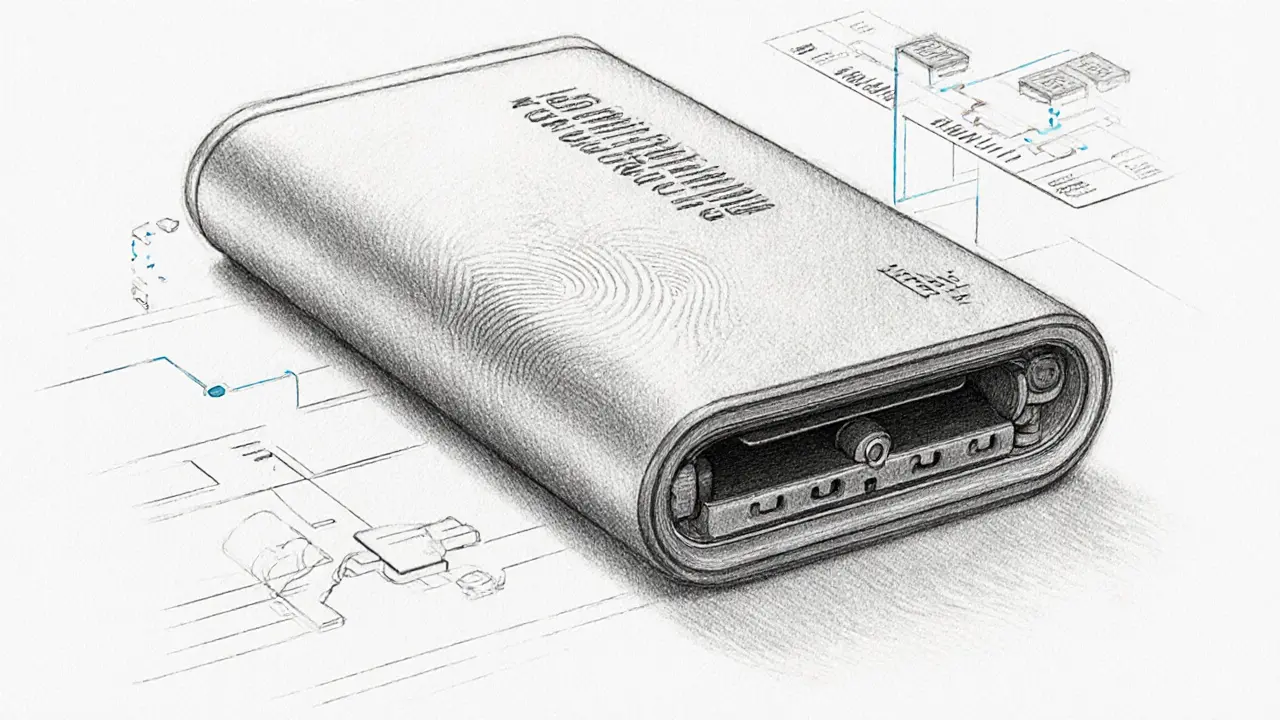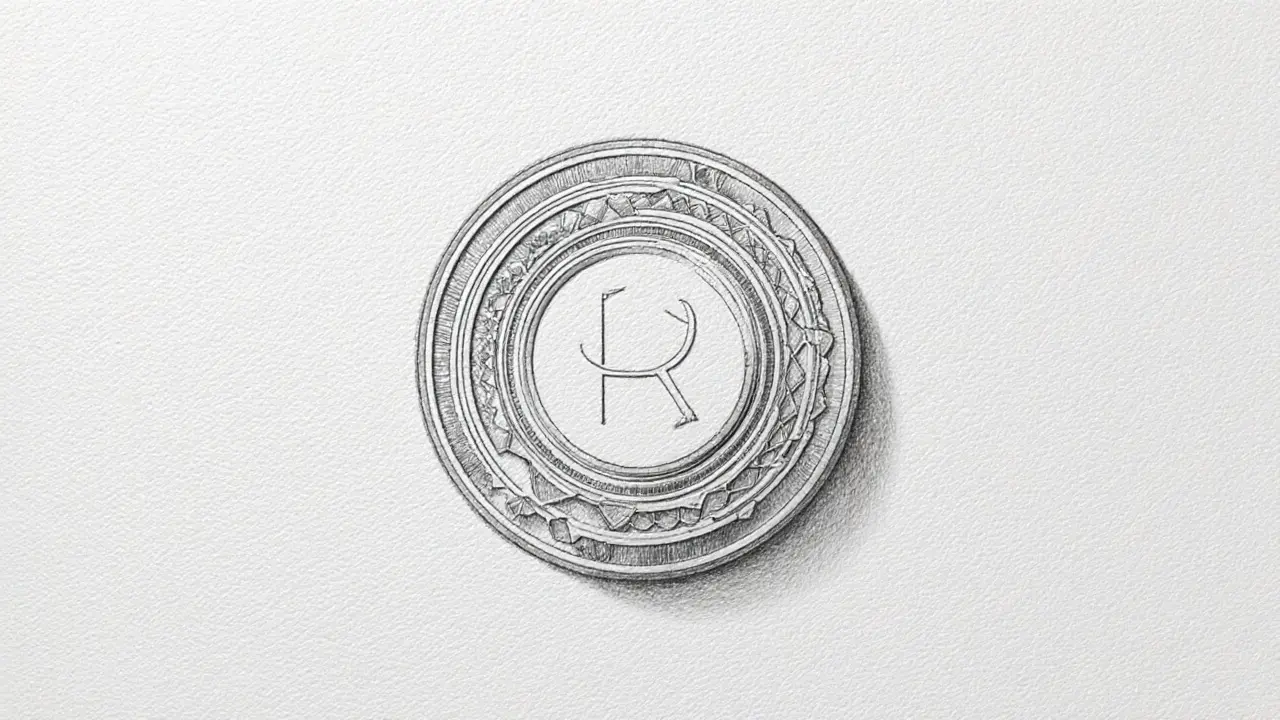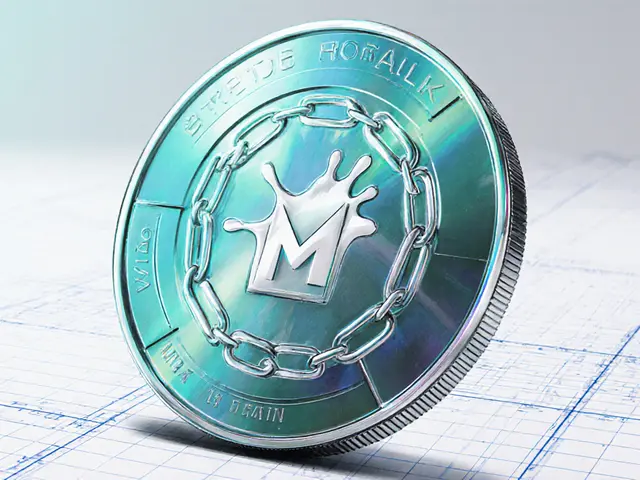VARA Capital Calculator
VARA License Capital Calculator
Calculate minimum capital requirements for VARA licenses in Dubai. All figures based on 2025 regulations.
Dubai's cryptocurrency market grew over 300% in 2024. But here's the catch: without a VARA license, operating any crypto business in Dubai is illegal. VIRTUAL ASSETS REGULATORY AUTHORITY (VARA)Dubai's official regulator for virtual assets, established in 2022 to oversee all crypto businesses in the emirate (excluding DIFC) isn't just another government body-it's a game-changer for crypto companies looking to operate legally in one of the world's fastest-growing digital asset hubs.
What is VARA and Why It Matters in 2025
Before VARA, crypto regulation in Dubai was messy. Now, it's clear: if you handle digital assets in Dubai, you need VARA's approval. This includes exchanges, wallets, NFT platforms, and DeFi projects. VARA's rules ensure Dubai stays a safe, transparent hub while protecting investors from scams. In 2025, VARA expanded its scope to cover DeFi protocols, NFTs, and tokenized assets. This makes it the most comprehensive crypto regulator in the Middle East.
The Six VARA License Categories
VARA breaks down crypto services into six main license types. Each has specific requirements. Let's break them down:
- Exchange services - Platforms where users trade cryptocurrencies. Examples include spot trading for Bitcoin and Ethereum.
- Broker-dealer services - Helping clients buy/sell crypto with fiat or other tokens. This includes both fiat-to-crypto and crypto-to-crypto trading.
- Custody services - Safeguarding clients' crypto assets. This requires strict security and insurance coverage.
- Transfer services - Moving crypto between wallets or accounts. Think of services that handle transfers between users.
- Wallet provision services - Offering digital wallets for storing crypto. These must meet security standards to prevent hacks.
- Token issuance services - Creating new tokens. Category 1 requires VARA approval for each token; Category 2 needs a licensed intermediary.
Capital Requirements: What You Need to Know
VARA sets strict capital requirements based on your service type. You can't start without meeting these minimums. Here's a quick reference:
| Service Type | Capital Requirement (AED) | Capital Requirement (USD) |
|---|---|---|
| Exchange | 5,000,000 | ~$1.36 million |
| Broker-Dealer | 1,000,000 | ~$272,000 |
| Custody | 4,000,000 | ~$1.09 million |
| Transfer | 500,000 | ~$136,000 |
| Wallet Provision | 250,000 | ~$68,000 |
| Token Issuance (Category 1) | 1,000,000 | ~$272,000 |
If you offer multiple services, the capital adds up. For example, combining Broker-Dealer and Custody services requires AED 5 million total. This ensures your business has enough financial muscle to handle risks and protect clients.
Fees and Ongoing Costs
Getting a VARA license isn't just about capital. You also pay fees:
- Application fee: AED 40,000 to AED 100,000, depending on your service scope.
- Annual supervision fee: Between AED 80,000 and AED 200,000 for ongoing monitoring.
Plus, you'll need legal help, compliance software, and security audits. These costs can add up quickly, but they're necessary for staying compliant. Think of it as an investment in your business's future.

Operational Requirements for VARA Approval
VARA expects more than just money. You need solid systems in place. Here's what you'll need:
- Be a legal entity registered in Dubai.
- Have a detailed business plan covering your operations, risks, and finances.
- Implement strong cybersecurity measures like encryption and regular audits.
- Get insurance for cyber threats and asset losses.
- Keep detailed records of all transactions and client interactions.
These aren't just paperwork-they're the backbone of a trustworthy crypto business. Without them, VARA won't approve your application.
AML/CFT Rules: Your Compliance Must-Haves
Anti-money laundering (AML) and counter-terrorism financing (CFT) rules are non-negotiable. VARA requires:
- Know Your Customer (KYC) checks for all users. This means verifying identities and sources of funds.
- Real-time transaction monitoring to spot suspicious activity.
- Reporting any red flags to authorities immediately.
For example, if a user tries to deposit $500,000 in Bitcoin without clear sources, your system should flag it. Automated KYC tools can help, but you still need trained staff to review cases. Skipping these steps risks heavy fines or license revocation.
Key Restrictions You Can't Ignore
VARA has banned certain high-risk activities. Most notably:
- Privacy coins like Monero and Zcash are completely prohibited. They're too anonymous for VARA's standards.
- All marketing materials must get VARA's approval before going public. No misleading ads allowed.
- Strict IT security rules require regular external audits and certifications.
These rules protect Dubai's reputation. If you ignore them, you'll face serious consequences.

How VARA Compares to Other UAE Regulators
Dubai isn't the only place with crypto rules. Here's how VARA stacks up:
- DFSA (Dubai Financial Services Authority) regulates crypto in the DIFC free zone. It's more focused on traditional finance integration.
- FSRA (Abu Dhabi Global Market) offers a different regulatory path, often used for certain crypto activities.
- SCA and Central Bank handle federal-level regulation outside free zones.
VARA is the most comprehensive for crypto-specific services in Dubai. If you're not in DIFC, VARA is your go-to regulator.
Common Challenges and Pro Tips
Many companies struggle with VARA's requirements. Here's what we've seen:
- High costs: Capital and fees can be steep, especially for small businesses.
- Complex paperwork: Business plans and compliance systems take time to build.
- Fast-changing rules: VARA updates guidelines regularly.
Pro tips: Hire a local compliance expert. Start early-applications can take 6-12 months. Use automated tools for KYC and monitoring. And always keep records organized. Companies that do this pass VARA reviews faster.
Frequently Asked Questions
Can I operate a crypto business in Dubai without a VARA license?
No. Operating any virtual asset service in Dubai without VARA approval is illegal. This includes exchanges, wallets, and NFT platforms. Violations can lead to fines, shutdowns, or criminal charges. VARA enforces this strictly to protect the market.
What's the difference between VARA and DFSA?
VARA regulates all crypto businesses in Dubai outside the DIFC free zone. DFSA handles crypto within DIFC, which has its own financial regulations. If your business is in DIFC, you need DFSA approval; otherwise, VARA is your regulator. The rules are similar but applied in different zones.
Are privacy coins like Monero allowed under VARA?
No. VARA explicitly bans privacy coins such as Monero and Zcash. These coins mask transaction details, making them high-risk for money laundering. VARA requires full transparency for all transactions, so these tokens are prohibited on licensed platforms.
How long does the VARA licensing process take?
It typically takes 6 to 12 months, depending on your application's complexity. Factors include how complete your documentation is and whether you need to address VARA's feedback. Starting early and working with experienced advisors can speed things up.
What happens if my VARA license application is rejected?
You can reapply after addressing the issues. VARA provides feedback on why your application was rejected. Common reasons include insufficient capital, weak AML systems, or incomplete business plans. Fix these gaps and resubmit. However, repeated rejections may lead to a longer waiting period before another attempt.






Jenna Em
22 October, 2025 . 01:43 AM
We live in a world where every rule looks like a veil, hiding who really pulls the strings. The VARA license feels like a new layer of that veil, promising safety but also telling us that something bigger is watching. If you think it's just paperwork, think again – every signature might be a key to an unseen network. So read the fine print and keep your eyes open.
Stephen Rees
23 October, 2025 . 05:29 AM
It’s as if the regulators are painting a masterpiece while we stare at the canvas, wondering who's really in charge.
Katheline Coleman
24 October, 2025 . 09:16 AM
Dear colleagues, the comprehensive overview of VARA’s licensing regime is both enlightening and essential for any entity contemplating operations within Dubai. The delineation of capital thresholds provides clear financial benchmarks that can aid in strategic planning. Moreover, the emphasis on AML/CFT compliance aligns with international best practices, underscoring Dubai’s commitment to market integrity. I would recommend that prospective applicants engage local legal counsel early to navigate the procedural nuances efficiently.
Amy Kember
25 October, 2025 . 13:03 PM
Look the capital tables are clear just follow them and you’ll be fine.
Evan Holmes
26 October, 2025 . 15:49 PM
Seems pricey but doable.
Isabelle Filion
27 October, 2025 . 19:36 PM
Ah, the VARA licensing scheme – a masterclass in bureaucratic artistry that would make even the most seasoned regulator weep with envy. First, you are invited to showcase your financial might by depositing millions of dirhams, a delightful reminder that crypto is just another playground for the affluent. Then, you must submit a business plan so detailed it could double as a novel, complete with risk matrices that would make a statistician blush. Of course, the cybersecurity requirements demand encryption protocols that rival those used by nation‑states, because nothing says “trust” like a checklist of firewalls. The insurance obligations, meanwhile, ensure that if anything goes wrong, a third‑party will be there to soothe your bruised ego. Let us not forget the perpetual oversight fees, a modest tribute to the ever‑watchful eyes of VARA, which apparently enjoy the sound of their own paperwork. All this, while the regulator subtly reminds you that privacy‑centric coins like Monero are banned – a gentle nudge toward transparency, or perhaps a signal that anonymity is a relic of the past. The marketing approval process guarantees that no bold claim slips through without a royal seal, preserving the sanctity of the market’s image. One cannot help but admire the elegance of a system that demands both capital and compliance in equal measure, as if to say that wealth without responsibility is merely vanity. Moreover, the timeline of six to twelve months for approval provides ample opportunity for entrepreneurial reflection, perhaps even a meditation on the futility of haste. Should an application be rejected, VARA graciously offers feedback, a rare gift in the world of regulation, encouraging you to revisit your fundamentals. It is this iterative dance between applicant and authority that truly defines the spirit of Dubai’s crypto renaissance. In summary, VARA offers a comprehensive, albeit demanding, framework that ensures only the most prepared survive – a meritocracy cloaked in red tape. So, raise your capital, sharpen your compliance tools, and prepare to submit your masterpiece.
Anna Kammerer
28 October, 2025 . 23:23 PM
While the regulatory labyrinth may appear daunting, a step‑by‑step checklist can demystify the process. Start by securing the minimum capital, then align your AML policies with the outlined standards, and finally engage a reputable compliance firm to audit your systems. Remember, a well‑prepared application often speeds up the review, sparing you months of waiting.
Mike GLENN
30 October, 2025 . 03:09 AM
I’ve seen several startups stumble over the capital requirements, only to discover that a solid financial foundation not only satisfies VARA but also builds investor confidence. In my experience, the key is to treat the capital not as a barrier but as a signal to the market that you have the backing to weather volatility. Combining this with a transparent KYC workflow and regular security audits creates a synergy that regulators love. Additionally, maintaining meticulous transaction records simplifies reporting and reduces the risk of inadvertent breaches. It’s also wise to stay updated on any regulatory amendments, as VARA tends to refine its guidelines periodically. By adopting a proactive compliance culture, you can turn what seems like a regulatory obstacle into a competitive advantage.
BRIAN NDUNG'U
31 October, 2025 . 06:56 AM
Excellent points; establishing a robust compliance framework indeed positions a firm for long‑term success. I would also advise allocating resources for continuous staff training, ensuring that the team remains vigilant against evolving threats. With such dedication, the licensing journey becomes an opportunity rather than a hurdle.
Donnie Bolena
1 November, 2025 . 10:43 AM
Wow!!! The VARA process looks intense!!! But think of the opportunities!!! Securing a license could open doors to global partnerships!!! Stay focused, keep the paperwork tidy, and you’ll be on your way!!!
Elizabeth Chatwood
2 November, 2025 . 14:29 PM
yeah its crazy but if u keep it simple and dont overthink it u’ll get thru the forms no prob
Tom Grimes
3 November, 2025 . 18:16 PM
Listen, I’ve been around the block enough to know that every regulator claims to protect you, but the real game is about control. VARA’s insistence on exhaustive documentation feels less like protection and more like a surveillance net you can’t dodge. When you’re forced to disclose every transaction, you’re essentially handing over the keys to your vault. It’s not just about compliance; it’s about who gets to look at your data and decide what’s acceptable. And don’t even get me started on the ban on privacy coins – it’s a clear sign that anonymity is being systematically eradicated. You might think that this is a step toward legitimacy, but in reality, it curtails the very essence of decentralization that crypto promised. So, while you’re busy polishing your AML reports, remember that the wider picture involves surrendering a piece of your operational autonomy.
Paul Barnes
4 November, 2025 . 22:03 PM
If freedom is the goal, then embracing regulated frameworks is the only logical path.